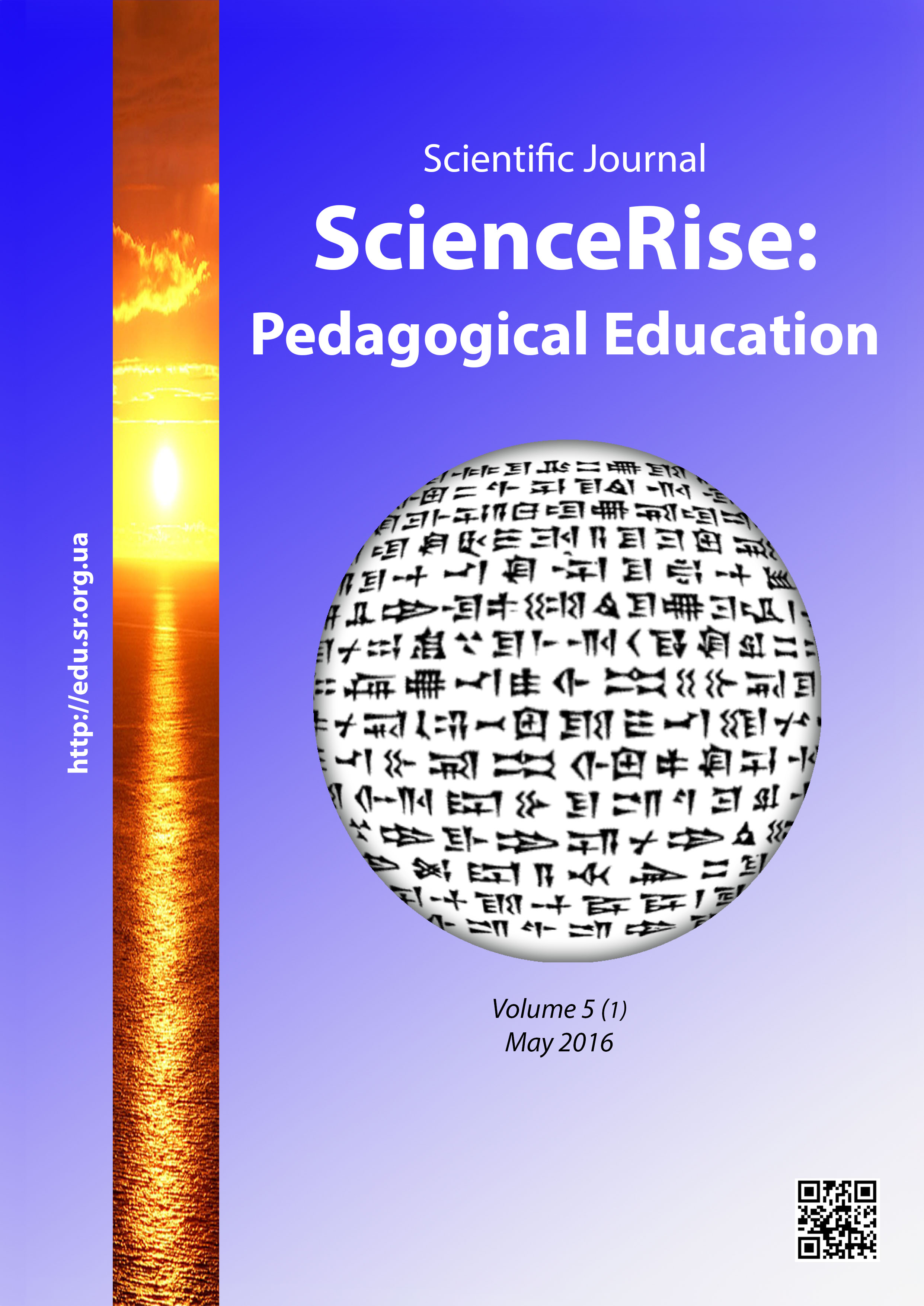The impact of kaizen philosophy on the development of personal-professional environment of the future specialist
DOI:
https://doi.org/10.15587/2519-4984.2016.70209Keywords:
higher technical educational institution, professional preparation, kaizen philosophy, educational audit, saving productionAbstract
The article deals with the topical problem of pedagogical science – study of the development of the personal-professional environment of the future specialists in the higher educational institutions; in the process of professional preparation the future teachers of the higher technical educational institutions with the help of introduction of the strategy of educational audit as the one of the aspects of kaizen philosophy are involved into the atmosphere of the “saving” use of resources of the higher technical educational institution.
The idea of “confinement modeling” introduction is defined as the specific lean-technology. The scientifically grounded pedagogical conditions of deployment of experimental technology of monitoring of the professional preparation of future teachers of the higher technical educational institutions were introduced. The pedagogical expedience of such outrunning preparation of the future teachers of the higher technical educational institutions based on kaizen philosophy was proved. The effectiveness of the introduction of lean-technology was experimentally verified: the parameters of experimental technology of monitoring of the professional preparation of the teachers of the higher technical educational institutions were grounded, the productive methods and means of its introduction at the expense of IEM actualization, scientific creation development (based on the scientific-pedagogic probation), elective courses, practically oriented activities introduction, qualification work preparation were concretizedReferences
- Imai, M.; Adler, Y., Spehr, V. (Eds.) (2005). Gemba Kaizen: the Way to cost reduction and quality improvement. Moscow: Alpina Business Books, 346.
- Belyaeva, A. P. (1997). Integrative-modular pedagogical system of professional education. Sankt-Peterburg: Neva, 189.
- Educational auditing. Availabela at: http://orange.strf.ru/client/doctrine.aspx?ob_no=1770&cat_ob_no=244
- George, M.; Turko, S., Adler, J. (Eds.) (2005). Lean manufacturing + six Sigma: Combining six Sigma quality with lean production speed. Moscow: Alpina Business Books, 360.
- Lukina, T. (2007). Monitoring education quality as a system component of strategic management in education. Higher education of Ukraine. Thematic issue "Higher education of Ukraine in the context of integration into European educational space: education quality monitoring", 6, 402–408.
- Melezinek, A. (1997). Engineering pedagogy. Moscow: Publishing house of the Moscow state technical University, 190.
- Nekrasov, S. D. (2003). the Problem of assessing the quality of professional education specialist. University management: practice and analysis, 1, 24–28.
- Realsize European dowu kompetentnostnogo pahodu at visy skol of Ukraine (2009). Kyiv: Pedagogichna Dumka, 360.
- Fidel'man, G. N., Dedikov, S. V., Adle, Ju. P. (2005). Alternative management: the Path to global competitiveness. Moscow: Alpina Business Books, 186.
- Grow, Ye. M. (2006). Department of navchalna mortgage. Kyiv: Knowledge, 365.
- Efremova, N. F. (2004). Educational audit of the quality of the educational process and its results. Standards and monitoring in education, 5, 19–22.
- Yermakova, S. S. (2011). Theoretical-methodical bases of monitoring of professional preparation of future teachers of higher technical educational institutions. Odessa: «InPress», 358.
Downloads
Published
How to Cite
Issue
Section
License
Copyright (c) 2016 Svitlana Yermakova

This work is licensed under a Creative Commons Attribution 4.0 International License.
Our journal abides by the Creative Commons CC BY copyright rights and permissions for open access journals.
Authors, who are published in this journal, agree to the following conditions:
1. The authors reserve the right to authorship of the work and pass the first publication right of this work to the journal under the terms of a Creative Commons CC BY, which allows others to freely distribute the published research with the obligatory reference to the authors of the original work and the first publication of the work in this journal.
2. The authors have the right to conclude separate supplement agreements that relate to non-exclusive work distribution in the form in which it has been published by the journal (for example, to upload the work to the online storage of the journal or publish it as part of a monograph), provided that the reference to the first publication of the work in this journal is included.







